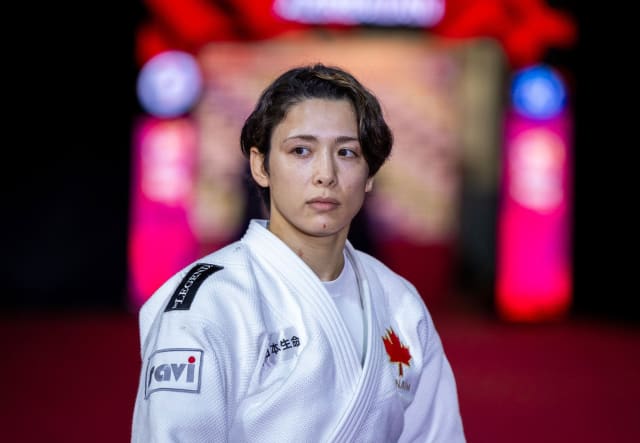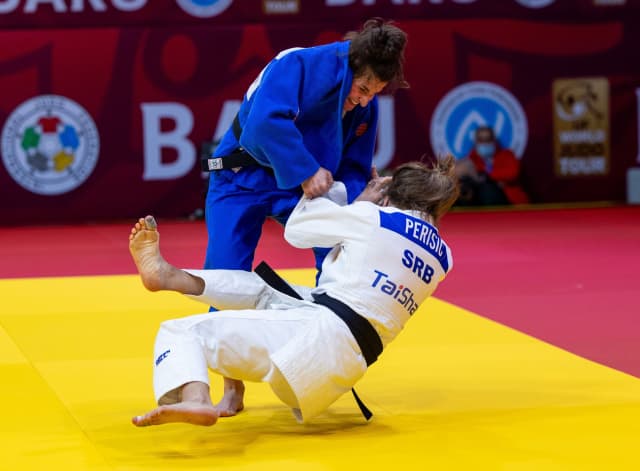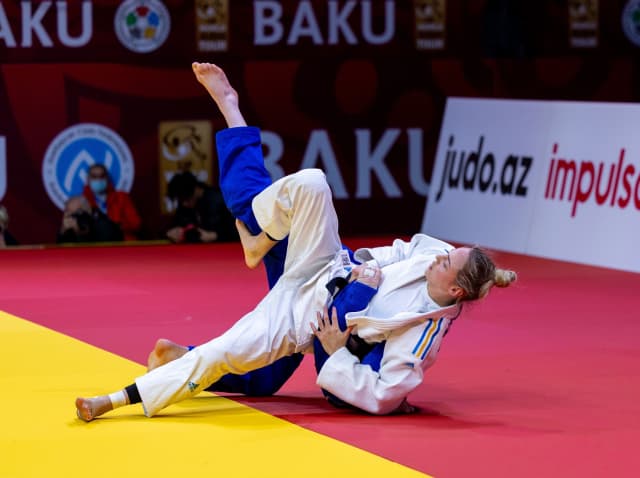In the next round, the quarter-final between Deguchi and Bilodid kept all its promises (LINK to ARTICLE). It was the world number one who made it to the semi-final, working carefully and consistently to pass Bilodid on penalties in a very tight match and there she defeated Eteri Liparteliani (GEO), while Bilodid found the energy and motivation to win in the repechage.
The poster for the final was not bad either, since it was the reigning Olympic champion, Nora Gjakova (KOS), who joined Deguchi, after cleaning up her part of the draw. Unfortunately Gjakova sustained in injury and was unable to compete in the final and therefore the gold went to double world champion Christa Deguchi.
The poster for the final was not bad either, since it was the reigning Olympic champion, Nora Gjakova (KOS), who joined Deguchi, after cleaning up her part of the draw. Unfortunately Gjakova sustained in injury and was unable to compete in the final and therefore the gold went to double world champion Christa Deguchi.
Daria Bilodid (UKR) could console herself with a bronze medal, but for having to face Julie Beurskens (NED). Beurskens had a great day; still only 19 but putting pressure on the old guard showing that her junior world medal wasn’t a fluke. She also took bronze in Kazakstan in 2023, her first WJT medal and she hoped to double it today but at the halfway point, Bilodid’s left makikomi was too strong to resist and a waza-ari was placed on the board. She followed it with another, identically, in the next exchange to win the medal. Beurskens is coming though, we can feel it.
Marica Perisic (SRB) and Eteri Liparteliani (GEO) faced each other in the second match for a bronze medal. It was an intense contest with no let up in pace or effort throughout. After half a minute if extra time, Liparteliani took a departure from the Georgian style we have come to expect and executed a beautiful de-ashi-harai to take the win.






